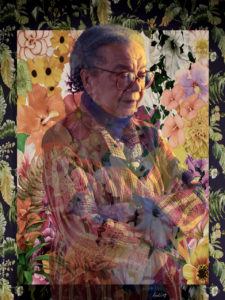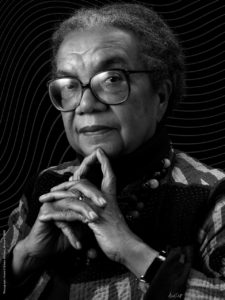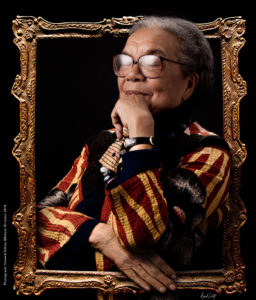
Few Americans deserve the term “public servant” more than Marian Wright Edelman, who, for most of her 79 years, has been a dedicated activist for the rights of children.
Born in Bennettsville, S.C., Edelman has been recognized with awards too numerous to list fully here. They include: The Presidential Medal of Freedom, MacArthur Fellowship, and the Albert Schweitzer Prize for Humanitarianism.
She graduated from Spelman College as valedictorian, and earned her Juris Doctor degree at Yale Law School in 1963. Following that, she became the first African American woman admitted to the Mississippi Bar.
In 1973, she founded the Children’s Defense Fund as a voice for poor children, children of color, and children with disabilities.The organization has served as an advocacy and research center for children’s issues, documenting the problems and possible solutions for children in need.
As leader and principal spokesperson for the CDF, Edelman worked to persuade United States Congress to overhaul foster care, support adoption, improve child care and protect children who are disabled, homeless, abused or neglected. As she has said of her work, “If you don’t like the way the world is, you have an obligation to change it. Do it one step at a time.”
Edelman’s many books include:


HS: Your three sons, with an African American mother and a Jewish father are at the intersection of two terrible things, racism and anti-Semitism. What did you teach them about these things?
MWE: We’d have dinner table conversations. We discussed the newspapers, we discussed killings, we discussed mistreatment. And we always read everything that went on in the civil rights movement, I never hid anything from them. And so they grew up very aware of the dangers. They were so clear about the outside world. And my grandchildren are, too.
We lived in a privileged neighborhood. But race was always present. God did not make two classes of people, of children, and every human being is sacred, and nobody has the right to invade that set of basic principles. When I was a child, we knew about the outside world, but we also knew we were sacred and that we could make a difference. And every issue that the Children’s Defense Fund works on today comes out of an experience in my own childhood.
I was a rebel from the time I was four or five. While the outside world was there telling us we were not equal and not worth anything, our parents, our community co-parents, our faith made it very clear that we were sacred. The public library was closed to us. However, my father and mother always had books in our home, books would come before a second pair of shoes.

I’ve had the most extraordinary role models from my community co-parents, my own parents, and then, my goodness, I met all these saints in Mississippi.
Talk about courage. They wanted their children to have a better life and we would file segregation case for them. They knew that they would be kicked off their plantations, they knew they would be shot at. The people of faith that I have seen and the courage of those people keeps me going.
We have been making a dent. There are major laws on the books that are feeding millions of people, that have changed and put early childhood system in place. We have civil rights laws that came out of the most ordinary people.
But we need to affirm what is done. The Children’s Defense Fund is the child of the Legal Defense Fund. Every 50 years we have spurts of progress and then we have “birth defects” flare up, because we’re a very ahistorical people. But we’ve got to confront the truth. We’re in another one of those periods where you have progress and then regression.

HS: If you had every congressman as your sister or brother, what would they need to do to end that?
MWE: We’ve got a legislative agenda that we put out every year. We’re trying to end child poverty and inequality among children.
Our government has got to do more of what they did last year. We pay a lot of attention to budget processes: Whoever controls the money controls the policy. We report how much it costs to keep these kids in poverty. How you can alleviate that poverty. We say what the policies are. It’s complicated. There’s no single bullet, but we lay it out, and we’ve made a huge amount of progress on early childhood.
When we put out our End Child Poverty report and our Portrait of Inequality, and our State of American Children, we’re going to show what it costs, and what it saves. That money goes to making sure that we have a high quality, early childhood system for every child.

HS: What does that look like, specifically?
MWE: Every child in America should have prenatal care. Every child should be immunized so that we keep children out of hospitals. And we try to say you can’t afford not do it; here’s what it costs you to immunize a child, here’s what it costs to keep them in the hospital.
HS: How do you get the government to spend less on a new jet plane and more on its teachers?
MWE: We are always talking about redefining national investment theories. We say how we would pay for everything and we say what a bargain it is. How dumb it is to put children in the cradle-to-prison pipeline.
States are spending, on average, three times more per prisoner than for the public-school pupil. That’s about the dumbest thing in the world.
And we also always say this is the right thing to do. It’s the decent thing to do, as well as the self-interested thing to do.

There’s an awful lot of hopelessness around. I will never forget two experiences I had with children, one after the riots in Harlem. After Doctor King’s assassination, I went to public schools in inner-city Washington, and told these children not to riot and not to ruin their future.
And a little boy, about ten, looked me in the eye and said: “Lady, what future? I haven’t got no future. I haven’t got nothing to lose.”
Pretty sophisticated. After Katrina, and all these children from inner-city New Orleans were washed out. And they went over to Houston, and I went through the schools where these children were. And, again, I said, “If you have one thing that you wanted to have me say to the American people, what would it be?” And they said, “Tell them we need hope.”
We made a lot of progress, but we’re such a stupid country. I’m determined. I’m not going to have my grandchildren fight these same battles all over again. And Mr. Trump is not going to win. He’s the personification of every value you want your children not to have. He’s a reflection of the system that has locked in the greed of the few at the expense of the many. That’s why we’re trying to say: Listen, our children are our future. And you may not like these poor black kids, okay, but they’re going to determine how well we compete in the world.
HS: Would you discuss the two sides of affirmative action?
MWE: How do you level the playing field? I don’t talk about affirmative action, I just say, “Invest in this child because it’s going to save you this amount of money.”
You’ve got to get a child ready for public school and you’ve got to reform public schools. We should want for other people’s children what we want for our own.
HS: What’s next for you and who’s going to take over?

We know what works.